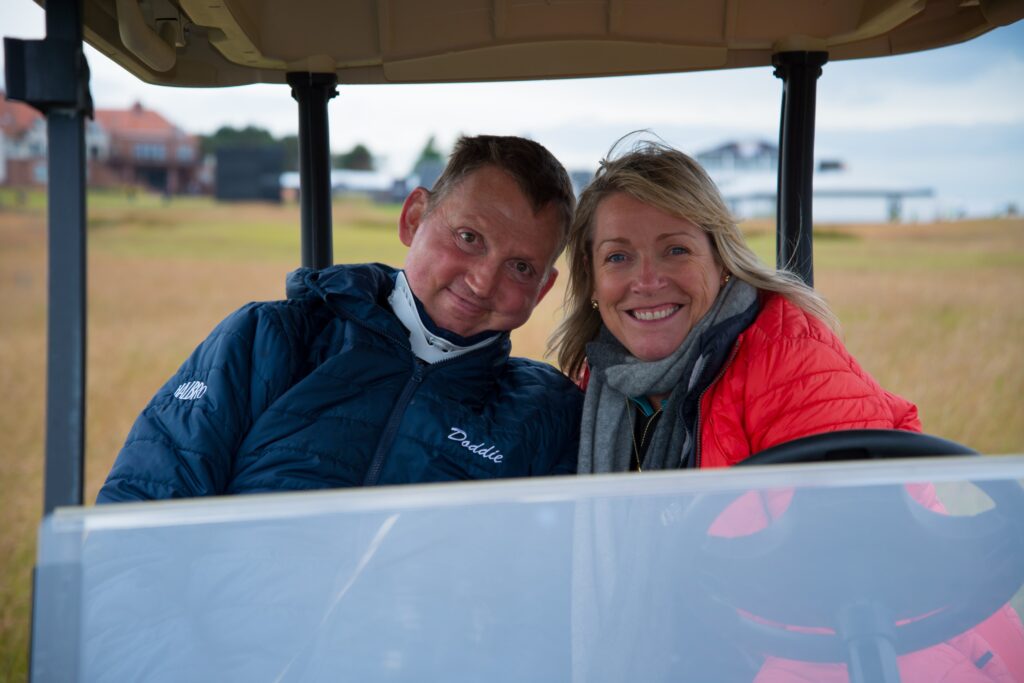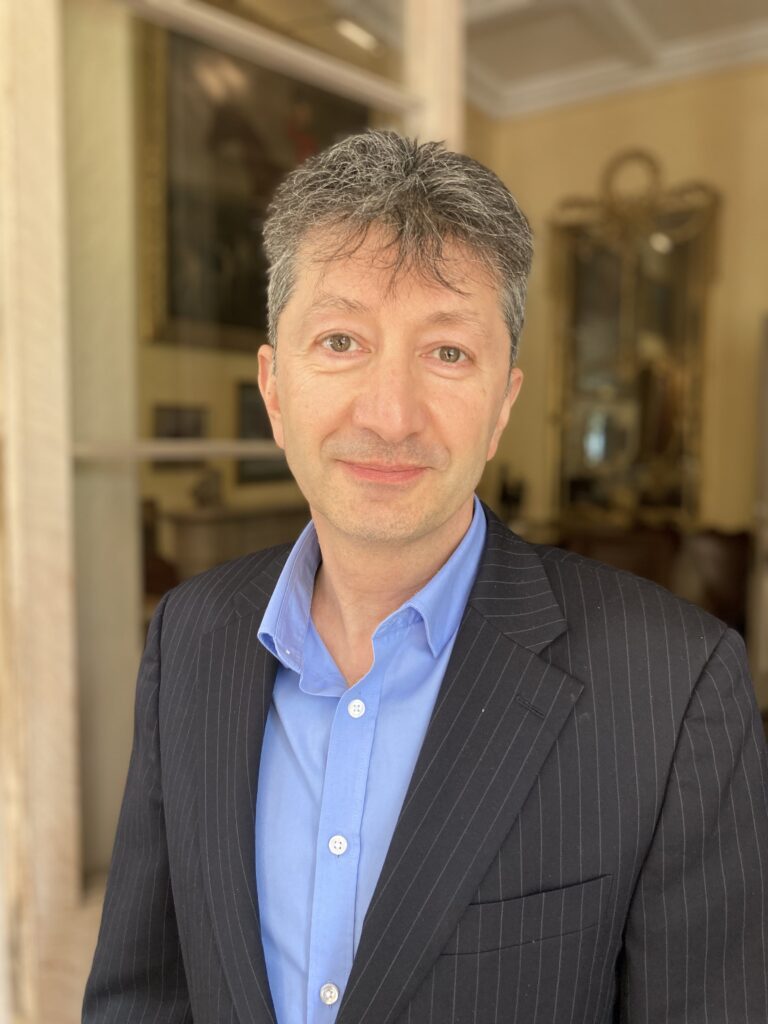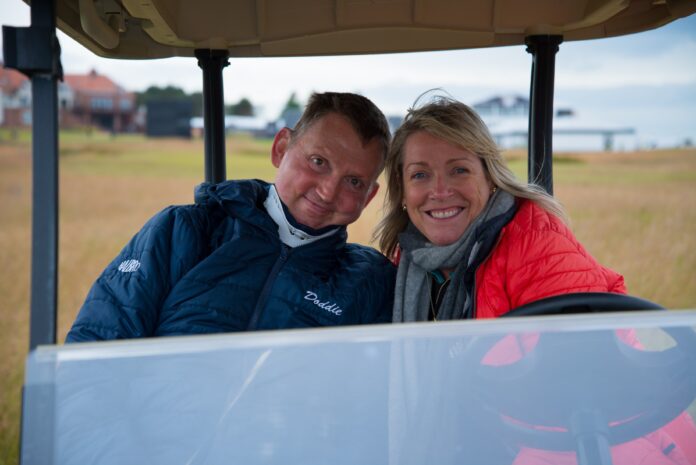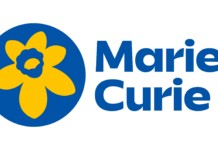
Foundation’s five-year plan outlines how millions will be invested in cutting-edge research to help speed up the search effective treatments for motor neuron disease (MND)- Leading MND clinical academic Professor Ammar Al-Chalabi believes recent breakthroughs mean effective treatments and potentially a cure are now conceivable
- Dad living with MND says Foundation’s new research strategy provides hope others may one day face a brighter outlook following diagnosis
- Strategy’sshort-term aim is to accelerate development of effective treatments that may slow the progress of MND, with the ultimate goal to help find a cure.
ONE of the UK’s leading clinical academics on motor neuron disease (MND) believes a cure for the terminal illness is a possibility for the first time following decades of slow progress.
Professor Ammar Al-Chalabi, Director of the MND Research Centre at King’s College London, was speaking as My Name’5 Doddie Foundation (MNDF) publishes its first dedicated research strategy today (Monday, April 17).
The five-year strategy, Catalysing a Cure, outlines how the Foundation – which is committed to funding research into MND – will invest millions of pounds in innovative research expected to have the greatest impact in pursuit of treatments and a cure for the devastating disease that affects around 5,000 people in the UK at any one time.
MNDF – founded in 2017 by the late Scotland rugby legend and MND campaigner Doddie Weir following his diagnosis – has so far committed around £8.5 million to cutting-edge MND research that may one day lead to an effective treatment and ultimately a cure. The Foundation was also one of several UK MND organisations to successfully campaign for a UK government commitment of £50m for MND research.
Publication of the strategy follows significant recent advances in MND research, including an improved understanding of MND biology and recent trials that have demonstrated for the first time that treatments can significantly slow disease progression in some cases. The progress has given the MND community more belief than ever that a cure will be found.
Professor Al-Chalabi, also Professor of Neurology and Complex Disease Genetics at King’s College London, said: “When I started in MND research almost 30 years ago it seemed ridiculous that an effective treatment might be possible. Now a cure is a possibility, although a treatment that dramatically slows MND is more likely. Both are still somewhere in the future.
“Recent advances have been made possible by global collaboration between scientists; advances in related fields such as genetics, cell biology and computing; more innovative faster trial designs that target the right parts of the problem; and of course because people living with MND and their families are willing to take part in research – without that, nothing would be learned.
“Research is expensive, however, and My Name’5 Doddie Foundation and other MND charities are crucial in funding it. They drive the cutting-edge stuff that pushes the field forward as well as the important ‘slogging away at it’ work that is essential to keep everything going. We are only where we are because of MND charities and the people who fundraise so effectively.”
Catalysing a Cure outlines how MNDF will drive forward research for the next five years, and comes with a commitment that by 2028 the Foundation will have invested in the robust development of novel targets; supported the development of new treatments; and developed strategies to improve the translation of advances from the lab to the clinic.

Its short-term aim is to deliver effective treatments that may slow the progress of MND, with the ultimate goal to find a cure.
Notable aspects of the strategy to improve translation from lab to clinic include improving early detection so treatments can be administered at the earliest opportunity; improving biomarkers – signs treatments are working or not – to monitor how effective they are; and finding new ways to group people living with MND according to the characteristics of their condition to more effectively direct treatment.

Bob Gledhill, a 54 year-old dad-of-one from Carmarthen, in South West Wales, was diagnosed with MND in 2020, and says a dearth of treatment options available was one of the biggest blows. He believes the publication of MNDF’s research strategy provides hope that, one day, others won’t have to go through the same experience.
He said: “The lack of treatment, options, or hope for people diagnosed with MND is an enormous frustration. They just told me ‘You have MND, I’m sorry.’
“That’s why I’m thrilled to see My Name’5 Doddie Foundation publish this strategy. All the work we and other fundraisers do is to try and progress things, raise money, and raise the profile of MND, but it only makes a difference if that money gets researchers into labs to produce good quality work that’s going to lead somewhere.
“This progress isn’t going to help me, the person diagnosed next week, or even next year, but it will mean that one day, someone will sit in front of a doctor like I did and they’ll say, ‘You have MND, however, here’s what we can do.’ That’s what gives us hope.”
Jessica Lee, Director of Research at My Name’5 Doddie Foundation, said: “Catalysing a Cure is ambitious; it focuses on bringing new treatments to people living with MND, faster. It is underpinned by what matters most to our community and recognises that the people living with this devastating condition do not have time to wait.
“We believe that effective treatments to slow or stop disease progression aren’t too far away. By working closely with our remarkable research community and supporting the adoption of new approaches and ways of thinking, we will accelerate the journey towards making these treatments a reality.”
Jill Douglas, Chief Executive at My Name’5 Doddie Foundation, said: “Doddie’s greatest frustration when he was diagnosed with MND in 2016 was the lack of hope for people faced with such devastating news. He wanted the Foundation to relentlessly work towards a world where that is not the case, and we are beginning to see real progress.
“There is huge momentum in MND research, and backed by the thousands of fundraisers who support the Foundation, this bold and ambitious research strategy ensures we are in the best position possible to build on that and work with the MND research community to hopefully accelerate the development of new treatments.”
For information on My Name’5 Doddie Foundation, and to view the Catalysing a Cure Research Strategy in Full, visit myname5doddie.co.uk/research/
Help keep news FREE for our readers
Supporting your local community newspaper/online news outlet is crucial now more than ever. If you believe in independent journalism, then consider making a valuable contribution by making a one-time or monthly donation. We operate in rural areas where providing unbiased news can be challenging. Read More About Supporting The West Wales Chronicle


























